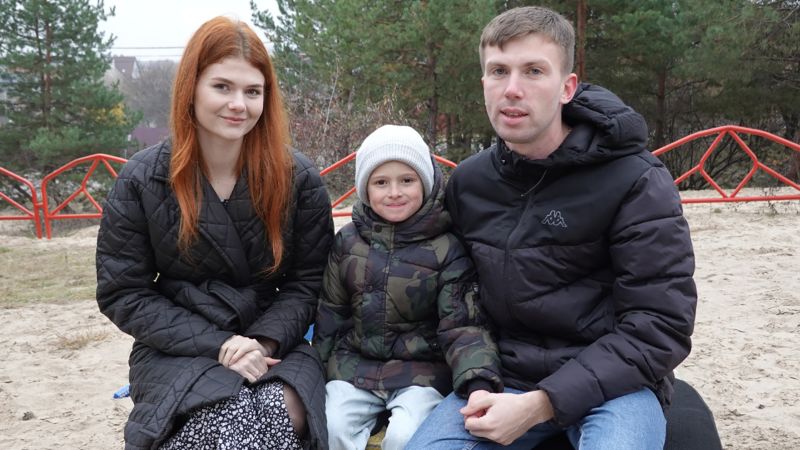The crew of the rescue vessel Iuventa have been credited with saving 14,000 lives in the Mediterranean Sea. Yet far from being celebrated for their lifesaving work, four of the rescuers appeared in court in Italy over the weekend on charges that carry up to 20 years in prison.
“It feels like an endless nightmare,” activist Kathrin Schmidt told the Observer before a preliminary hearing on Saturday in a court in the Sicilian coastal town of Trapani. “Everyone knows the photos and videos of these rubber boats already unseaworthy, but then overcrowded…To say there is no need to rescue these people is a crime in itself.”
More than 24,000 people who have tried to cross the Mediterranean Sea to Europe since 2014 have died or gone missing, according to the International Organization for Migration. Most drowned; some died from lack of water and/or shelter from the scorching sun; the fate of the others remains unknown, the worst presumed. “If that doesn’t constitute a state of necessity, what else would you do? Schmidt asked.
Schmidt was an occupational therapist but changed direction in 2015, the year more than a million people came to Europe to seek asylum. She never set out to lead a search and rescue boat, but in 2016 she became team leader on the Iuventa. The crew has been trained to be quick and efficient in dealing with men, women and children, who might be panicked, sick or injured on overcrowded boats.
Faced with the urgency of the rescue, there was no time for personal reflection. “I was watching the boat,” says Schmidt. “How long will it be stable? From which side should we approach? What do wind and water do? How many life jackets do we have? There are so many questions you need to answer in your head like this.
On August 2, 2017, everything seemed normal. The crew had rescued two people at the request of the Italian authorities and were asked to proceed to the port of Lampedusa. But they were shocked when they arrived: four Coastguard boats with flashing blue lights escorted the Iuventa to the dock and awaited the media scrum. “None of us expected this. It was very surreal,” Schmidt said.
The crew didn’t find out they were under investigation until a year later. Now, almost five years after Iuventa was seized, their odyssey through the Italian justice system has begun. Yesterday, Saturday, 21 defendants, four Iuventa crew members and 17 other NGO workers took part in a preliminary hearing in Trapani, a process to decide whether the case proceeds to a full trial. Given the number of defendants and the different languages, a decision is not expected for several months.
The activists are accused of collusion with smugglers to transport migrants to Europe. Yet an independent team of digital and oceanographic experts, who reviewed photos and video, weather and ocean currents, found that the images released by the prosecution in Italian media had been taken out of context. A semi-rigid inflatable boat Iuventa, believed to be towing a ship to Libya to be reused by smugglers in a photo, was heading north towards Europe. In the case of the prosecution, “the facts are not invoked to establish a true account of events but to construct factual lies”, concluded the investigation by Forensic Architecture, based in London, which was submitted to the Italian courts .
Francesca Cancellaro, a lawyer representing the four Iuventa defendants, described the case as unique, not only because of the length of the investigation, but also because of the use of undercover agents, an activity of “incredible” phone tapping and a trial that involves more than 20 defendants. “I am absolutely confident that we will show their full innocence,” she said. “We are talking about people involved in rescue operations. They respect the obligation arising from the law of the sea: the duty to rescue people in distress.
Asked to comment, Gabriele Paci, the prosecutor of Trapani, told the Observer“The work these organizations do to save people [at sea] is undisputed, but in some cases there are assumptions, which must be assessed by the judge, that there were agreements [made] with the traffickers, which meant [the rescuers] knew then when and in which part of the sea [to find migrants]. It’s something you can’t do.
“We do not question organizations that do humanitarian work, but there are certain behaviors that Italy prohibits and which constitute a crime.”
For observers, the case marks an alarming trend of blaming rescuers and criminalizing people seeking asylum, or simply a better life in a prosperous part of the world less marked by poverty, corruption and the effects of climate degradation.
Cornelia Ernst, a German MEP from the left-wing Die Linke party, said she was “deeply concerned” that the criminalization of people on the move and those who support them is intensifying across Europe. “The case of the crew of the Iuventa, who is on trial for having fulfilled their duty to save lives, at sea is scandalous. Civilian search and rescue organisations, NGOs and volunteers are stepping in because the European Union is shamefully failing to act again and again.
Many believe the tide turned in 2014 when Italy ended its Mare Nostrum naval rescue mission, leaving a tighter EU-funded border surveillance operation in its place. Since then, the EU has outsourced the issue. More than 84% of rescues in the central Mediterranean are now carried out by the EU-backed Libyan Coastguard, which brings people back to Libyan detention centers, where aid agencies say they face beatings , sexual abuse and forced labor.
Meanwhile, the death toll is mounting: last year, 1,100 people died or disappeared after leaving Libya. And the Iuventa remains moored in the port of Trapani.
 Christ Yoder
Christ Yoder
/cloudfront-us-east-1.images.arcpublishing.com/gray/ODYKQRO5GRGJREMXBZNK5UFIX4.jpg)


